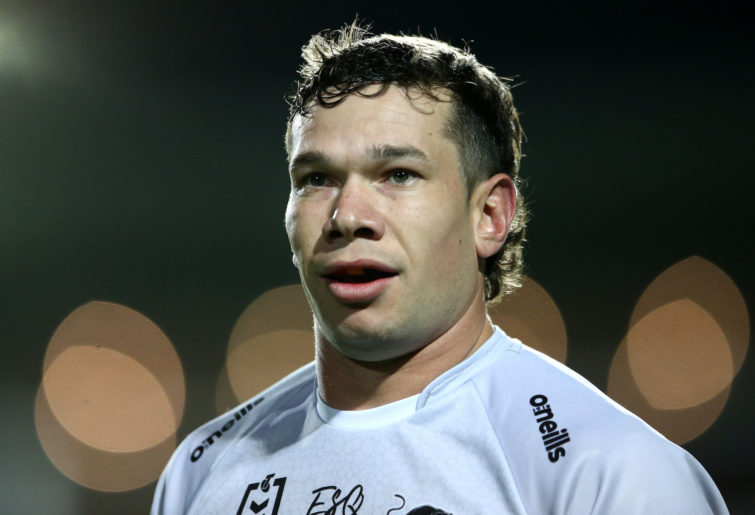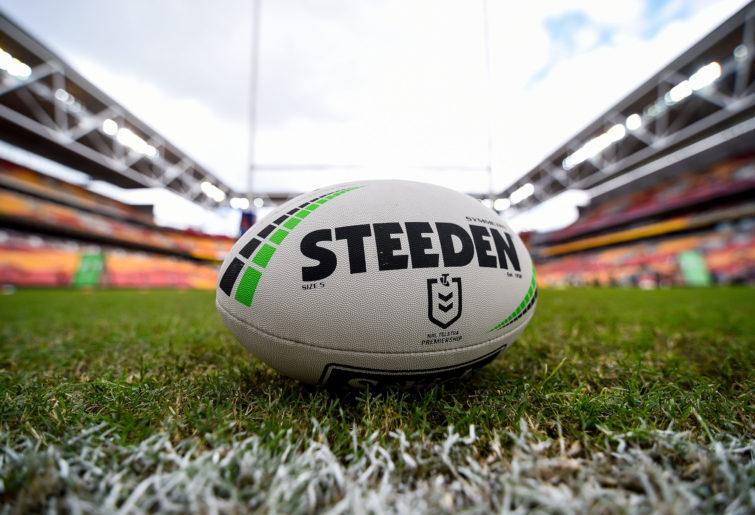I like Andrew Voss. No, you know what, that doesn’t go far enough. I bloody love Vossy.
One of the finest callers of a game of rugby league, he’s got that bit of everyman about him – he sounds so at ease while commentating that you may be mistaken for thinking what he does is a piece of cake.
Don’t get me wrong, Ray Warren is brilliant too, but his explosiveness and just the general timbre of his voice is impossible to repeat (and we’ve all, all tried) – nothing about the way he goes about his business sounds simple.
Most of all, Vossy strikes me as a thoroughly decent human. This was perhaps best evidenced by his re-telling of why he got the chop from his gig at Channel Nine in his 2017 book Stuff you may have missed — a unique look at rugby league.
Many had slavered over the possibility of Voss finally dishing the dirt on his falling out with Nine’s head honchos, presumably because of his legal stoush with Ray Hadley.
Instead, Voss took the high ground, essentially summing it up as “I had 17 incredibly fulfilling years at Channel Nine, and then one really weird one. What happened to me, as disappointing as it was at the time, was just business.”
While he didn’t bullshit his readers by pretending there was no story, neither did he heap bullshit on his previous employers.
It had a bit of fire, but it was tempered with perspective and respect. It’s Voss to a tee.
So that’s why I struggle to comprehend his take on recreational drugs in sport.
He took up the issue on his 1170 SEN radio program last week, in the wake of Brent Naden testing positive for metabolites of cocaine after the NRL grand final.

(Photo by Jason McCawley/Getty Images)
“Time to draw the line in the sand, accountability for the player, zero tolerance on the issue of drugs,” Voss said.
“Take illegal drugs, don’t play our sport. What is the negative of following through on that?”
It’s not the first time Voss has weighed in on illicit drugs with a ‘shoot ‘em all and let God sort ‘em out‘ attitude, calling in 2017 for “no more leniency on first strikes”.
“To me it is obvious. There can be no more money spent on education in this area. It is so black and white. Drugs such as cocaine are illegal. To buy such a drug is a criminal offence,” Voss wrote for NRL.com.
“If you want to play in the NRL, don’t take drugs. Pretty simple message.”
However, simple messages are rarely the answer to complex problems.
And drug use is hugely complex.
It’s been nearly 50 years since Richard Nixon’s 1971 ‘war on drugs’ press conference. It’s been almost 40 years since Nancy Reagan popularised the slogan “just say no”.
Simple solutions.
The result? The continued rampant use of illegal substances, as well as an opioid epidemic (fuelled in large part by prescription medications) that has decimated rural America.
Drugs are bad, m’kay, but criminalisation and a general lack of empathy made things substantially worse.
So we come to the NRL’s policy on illicit drugs, which is dressed up as a three-strike policy:
A first positive test results in the player receiving a suspended fine, and they must undertake a mandatory treatment program…
Players who record a second contravention will serve a 12-match ban, the prospect of contract termination, a fine, and further treatment and monitoring.
I didn’t include the bit about the third-time offenders because while it’s hidden in the middle there, the critical part of the NRL’s drug policy is that after a second positive, players face “the prospect of contract termination”.
The prospect. It’s a bit like those dandruff ads that promise they can eliminate “up to 100 per cent of flakes” – like, it might happen. Just like after your second positive test and 12 weeks on the sidelines, your club might continue to employ you.
But in practice, that second strike is all the vast majority are going to get. They’ll be sacked and tarred as a druggie who other NRL clubs won’t touch.
Tough beat.
And sure, the player made the decision to break the law and sure, they were dumb enough to do it even after they had received that first warning and undergone treatment.
But still, that’s career over and in very, very public circumstances, all for doing something 3.4 million Australians were reported to have done in 2019 alone.
Far from using the ‘everybody else was doing it, why can’t I?’ defence though, the millions of Aussies who imbibed in those 12 months are further evidence of complexity. Because while plenty do drugs to relax or have a bit of fun, many, many aren’t in it for a laugh.
According to the Department of Health, there can be a “deeper purpose” at play, “such as helping enhance identity, acceptance, and reducing psychological distress or a sense of alienation.”
And is it beyond the realm of imagination that within the group of 500 or so young men in the NRL, maybe more than a few struggle with such issues?

(Photo by Albert Perez/Getty Images)
That doesn’t mean we should have open slather on illicit drugs in competitive sport. But if someone is using drugs to deal with their problems, do you really think you’re helping that person by publicly outing them and making them serve a lengthy, potentially career-ending suspension the first time they get caught?
Where’s the empathy? Where’s the consideration for a person’s mental health? Where’s the acceptance that while it’s ultimately a question of personal responsibility, perhaps the multi-billion-dollar industry profiting from this person’s skill and profile may have contributed to their decision to go outside the law for a feeling of release and relief?
“Don’t do it” is good advice for dealing with a two-year-old, but based on my experiences with three-year-olds, rules with no explanation or empathy are completely ineffective.
So if the NRL wants to combat the issue of illicit drugs, the answer isn’t to name and shame vulnerable young people the very first time.
The good news for the NRL is that they don’t need to work very hard to see that being more strict isn’t the answer – the evidence has played out over 50 years of failed policy, trillions of wasted dollars and millions of ruined lives.
People need our love, support and compassion – and that comes in different ways. Some people respond to a hug. Some need a kick in the bum. We’re all different.
Which is why a blanket rule for dealing with people who turn to illegal drugs to assist with their struggles is as naïve as it is heavy-handed.






























































































